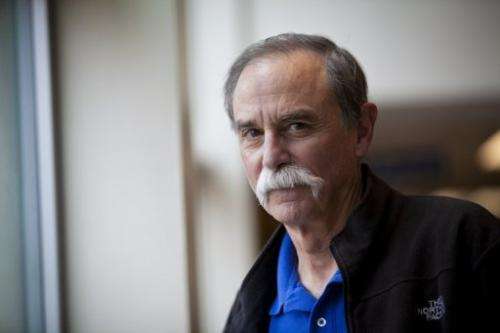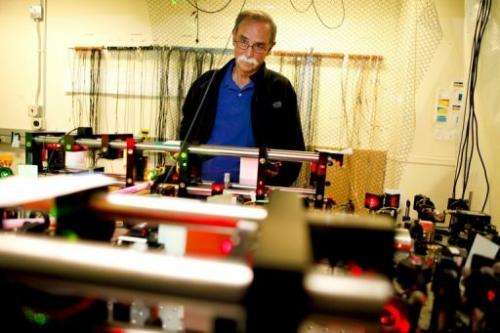Quantam research will yield 'super-computers': Nobel winner

David Wineland, who won the Nobel Prize for work in quantum physics with Serge Haroche of France, said our limited computers will "eventually" give way to super-fast, revolutionary ones.
The pair, both 68, were honored for pioneering optical experiments in "measuring and manipulation of individual quantum systems," the Nobel Physics jury said in its citation on Tuesday.
"Most science progresses very slowly," Wineland told AFP.
"On the computing side, we are able to think about applying these quantum systems to solve other problems that we try to do on computer now but our computers are limited.
"It has not happened yet and I am not even sure it will happen in the next decade, but I think it will eventually happen using quantum principles to make a quantum computer that will actually have applications."
In a pre-dawn phone interview recorded and posted on the Nobel committee website earlier, Wineland cautioned that such a super-computer was still a "long, long way" off.
Today's computers use a binary code, in which data is stored in a bit that could be either zero or one.
But in superposition, a quantum bit, known as a qubit, could be either zero or one, or both zero and one at the same time.
This potentially offers a massive increase in data storage, greatly helping number-crunching tasks such as running climate-change models and breaking encrypted codes.
But many technical hurdles remain to be overcome.
"If we have the quantum computer, it will allow us to efficiently simulate other quantum systems that are of interest," Wineland told AFP, noting that scientists today "are simply limited by the computing power of our conventional computers."

The research has also led to the construction of extremely precise clocks that could become the basis for a new standard of time, with a more than hundred-fold greater precision than present-day caesium atomic clocks, it said.
Specialists in optics, the two scientists worked independently of each other to trap particles, enabling the quantum state to be examined and manipulated at ultra-low temperatures.
"In some sense, the systems we worked on are in many ways complementary," said Wineland, project leader at the Ion Storage Group of US government's National Institute of Standards and Technology since 1979.
"We were never direct competitors but the nice thing is that we could look at a similar problem but in a different context. The experiments were different but they could be related at a fundamental level."
He said that news of his win was "overwhelming."
"This could have gone to so many people beside me," Wineland added, noting that a "huge" number of scientists are involved in his field.
Wineland said he was awakened in the middle of the night at his home in Boulder, Colorado with a call from the committee in Stockholm.
"Actually, my wife woke me up," he said. "I would have slept through it."
(c) 2012 AFP


















